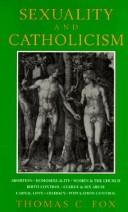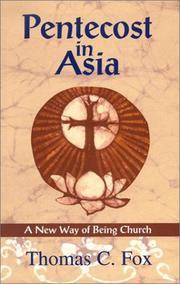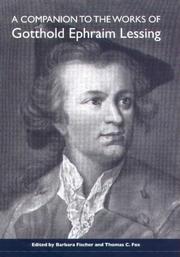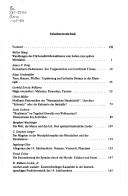| Listing 1 - 10 of 11 | << page >> |
Sort by
|
Book
ISBN: 1787448088 1800102461 164014062X Year: 2022 Publisher: Rochester, New York : Camden House,
Abstract | Keywords | Export | Availability | Bookmark
 Loading...
Loading...Choose an application
- Reference Manager
- EndNote
- RefWorks (Direct export to RefWorks)
"This study investigates the negotiation of Jewish-German-Communist identity in post-Holocaust Germany, specifically East Germany. After an introduction to the political-historical context, it highlights the conflicted writings of six East German Jewish writers: Anna Seghers (1900-1983), Stefan Heym (1913-2001), Stephan Hermlin (1915-1997), Jurek Becker (1937-1997), Peter Edel (1921-1983), and Fred Wander (1917-2006). All were Holocaust survivors. All lost family members in the Holocaust. All were important writers who played a leading role in East German cultural life, and all were loyal citizens and committed socialists, although their definitions and maneuvers regarding Party loyalty differed greatly. Good soldiers, they viewed their writing as contributing to the social-political revolution taking place in East Germany. Informed by Holocaust and trauma studies, as well as psychology and deconstruction, this study looks for moments when Party discipline falters and other, repressed, thoughts and emotions surface, decentering the works. Some recurring questions addressed include: What is the image of Germans? Do the works evidence revenge fantasies? How does the negotiation of ostensibly mutually exclusive identities play out? Is there acknowledgement of the insufficiency of Communist theory to explain anti-Semitism, as well as recognition of Stalinist or other forms of Communist anti-Semitism? Although these writers ultimately established themselves in East Germany, attaining positions of privilege and even power, their best works nonetheless evince an acute sense of endangerment and vulnerability; they are documents both created and marked by trauma"--
German literature --- Communism and literature --- Holocaust survivors' writings --- Holocaust, Jewish (1939-1945), in literature. --- Identity (Philosophical concept) in literature. --- History and criticism. --- Jewish authors --- Identity in literature --- Literature --- Writings of Holocaust survivors --- Literature and communism --- History and criticism --- Communist Writers. --- East Germany. --- Holocaust Survivors. --- Identity Negotiation. --- Jewish-German Identity. --- Literature. --- Post-Holocaust. --- Trauma Studies.
Book
ISBN: 9781787448087 9781640140622 Year: 2022 Publisher: Rochester, New York Camden House
Abstract | Keywords | Export | Availability | Bookmark
 Loading...
Loading...Choose an application
- Reference Manager
- EndNote
- RefWorks (Direct export to RefWorks)

ISBN: 0807613967 Year: 1995 Publisher: New York (N.Y.): Braziller
Abstract | Keywords | Export | Availability | Bookmark
 Loading...
Loading...Choose an application
- Reference Manager
- EndNote
- RefWorks (Direct export to RefWorks)
Sex --- Religious aspects --- Catholic Church --- Doctrines.
Book
ISBN: 9715019617 Year: 2002 Publisher: Quezon City Claretian publications
Abstract | Keywords | Export | Availability | Bookmark
 Loading...
Loading...Choose an application
- Reference Manager
- EndNote
- RefWorks (Direct export to RefWorks)

ISBN: 157075442X Year: 2002 Publisher: Maryknoll Orbis
Abstract | Keywords | Export | Availability | Bookmark
 Loading...
Loading...Choose an application
- Reference Manager
- EndNote
- RefWorks (Direct export to RefWorks)
Book
ISBN: 1556124643 Year: 1991 Publisher: Kansas City Sheed and Ward
Abstract | Keywords | Export | Availability | Bookmark
 Loading...
Loading...Choose an application
- Reference Manager
- EndNote
- RefWorks (Direct export to RefWorks)
Persian Gulf War, 1991 --- Religious aspects --- Catholic Church --- Doctrines.
Multi
ISBN: 9781787448087 9781640140622 Year: 2022 Publisher: Rochester, New York Camden House
Abstract | Keywords | Export | Availability | Bookmark
 Loading...
Loading...Choose an application
- Reference Manager
- EndNote
- RefWorks (Direct export to RefWorks)
Thematology --- Literature --- German literature --- Germany

ISBN: 1571132430 9781571132437 9781571136602 1571136606 Year: 2005 Publisher: Rochester, N.Y. : Camden House,
Abstract | Keywords | Export | Availability | Bookmark
 Loading...
Loading...Choose an application
- Reference Manager
- EndNote
- RefWorks (Direct export to RefWorks)
One of the most independent thinkers in German intellectual history, the Enlightenment author Gotthold Ephraim Lessing (1729-1781) contributed in decisive and lasting fashion to literature, philosophy, theology, criticism, and drama theory. Lessing invented the bürgerliches Trauerspiel (bourgeois tragedy) and wrote one of the first successful German tragedies as well as one of the finest German comedies. In his final dramatic masterpiece, Nathan der Weise, he writes of Christianity, Judaism, and Islam, of religious tolerance and intolerance and the clash of civilizations. Lessing's dramas are the oldest German theater pieces still regularly performed (both in Germany and internationally), and both his plays and his drama theory have influenced such writers as Goethe, Schiller, Hebbel, Hauptmann, Ibsen, Strindberg, Schnitzler, and Brecht. Addressing an audience ranging from graduate students to seasoned scholars, this volume introduces Lessing's life and times and places him within the broader context of the European Enlightenment. It discusses his pathbreaking dramas, his equally revolutionary theoretical, critical, and aesthetic writings, his original fables, his innovative work in philosophy and theology, and his significant contributions to Jewish emancipation. The volume concludes by examining 20th-century reception of Lessing and his oeuvre.
Contributors: Barbara Fischer, Thomas C. Fox, Steven D. Martinson, Klaus L. Berghahn, John Pizer, Beate Allert, H. B. Nisbet, Arno Schilson, Willi Goetschel, Peter Höyng, Karin A. Wurst, Ann Schmiesing, Reinhart Meyer, Hans-Joachim Kertscher, Hinrich C. Seeba, Dieter Fratzke, Helmut Berthold, Herbert Rowland.
Barbara Fischer is Associate Professor of German and Thomas C. Fox is Professor of German, both at the University of Alabama.
1 LESSING, GOTTHOLD EPHRAIM --- Filosofie. Psychologie--LESSING, GOTTHOLD EPHRAIM --- Lessing, Gotthold Ephraim, --- Lai-hsin, --- Lai-hsin, Kao-tʻe-ho-tʻe Ai-fei-la-mu, --- Lessing, Gotkholʹd Ėfraim, --- Lessing, G. E., --- Lessing, Goṭhold Efrayim, --- לסינג, גוטהולד אפרים, --- לעססינג, אפרים ידידיה, --- לעססינג, א. ו., --- לעססינג, גאטהאלד אפרים, --- לעססינג, גאטטהאלד עפראים --- לעססינג, גאטטהלד עפרים, --- לעססינג, ג. ע., --- לעססינג, ידידיה אפרים --- לעססינג, ידידיה אפרים, --- 莱辛, --- Criticism and interpretation. --- 1 LESSING, GOTTHOLD EPHRAIM Filosofie. Psychologie--LESSING, GOTTHOLD EPHRAIM --- Lessing, Gotthold Ephraim --- LITERARY CRITICISM / European / German. --- 20th-century reception. --- Bible influence. --- Enlightenment author. --- German comedies. --- German tragedies. --- Gotthold Ephraim Lessing. --- Jewish emancipation. --- Nathan der Weise. --- bürgerliches Trauerspiel. --- religious tolerance. --- theological background.
Digital
ISBN: 9781571136602 Year: 2005 Publisher: Rochester, N.Y. Camden House
Abstract | Keywords | Export | Availability | Bookmark
 Loading...
Loading...Choose an application
- Reference Manager
- EndNote
- RefWorks (Direct export to RefWorks)

Abstract | Keywords | Export | Availability | Bookmark
 Loading...
Loading...Choose an application
- Reference Manager
- EndNote
- RefWorks (Direct export to RefWorks)
Civilization, Medieval, in literature --- German literature --- Congresses --- History and criticism
| Listing 1 - 10 of 11 | << page >> |
Sort by
|

 Search
Search Feedback
Feedback About UniCat
About UniCat  Help
Help News
News